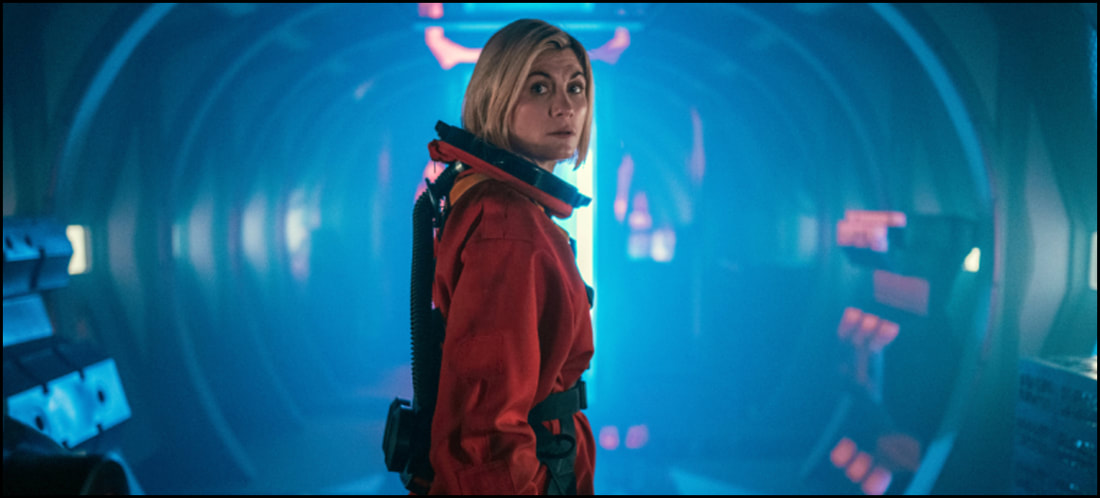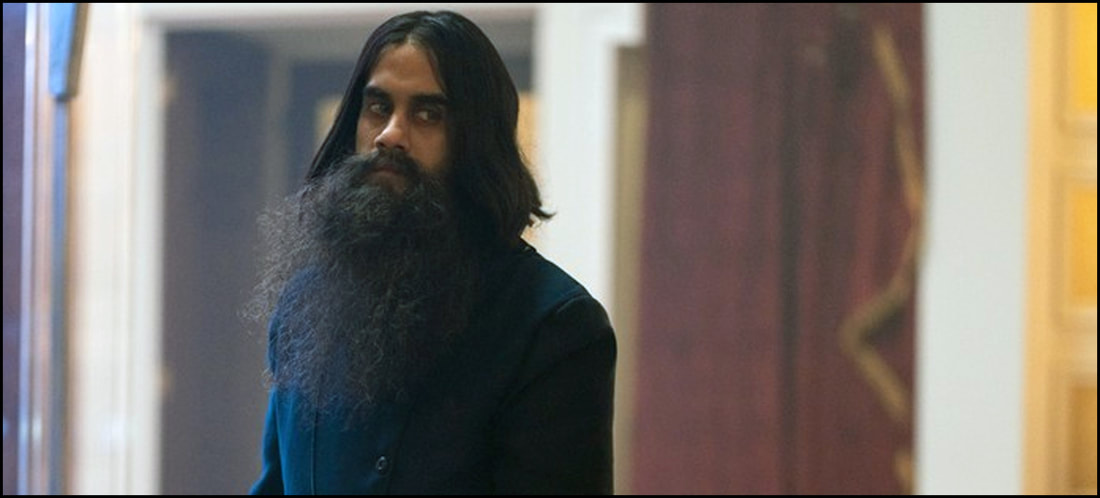Another end to an era within the broader phenomenon that is the SciFi/Fantasy juggernaut Doctor Who as star Jodie Whittaker bid adieu to the role, an incarnation that saw the once popular program lose another million (or so) in regular viewers (depending upon which source one chooses to believe). Showrunner Chris Chibnall is also departing – perhaps with his tail between his legs, as they say – and the BBC has brought back previous-showrunning-mastermind Russell T. Davies perhaps in hopes of bringing back a bit of elegance to the franchise that saw some of its highest numbers ever under his tenure. In a bit of last-minute tinkering, Davies also brought back previous Doctor David Tennant – in a well-hidden turn of events – whose popularity alone might help rejuvenate the program if (and only if) the stories can get back into territory audiences can again embrace.
Sigh.
But, as her crowning achievement in world of Who, Whittaker went out with a respectable bang: “The Power Of The Doctor” honestly felt a bit to me like it was perhaps Chibnall and company’s most formulaic outing. It felt like – unlike so much of what he’d crafted before – the showrunner went to great lengths to check every box on that list of what audiences expect in a regeneration episode. You’ve gotta have big villains? Check! You’ve gotta have big guest stars? Check! You’ve gotta have a scenario worth of bringing one incarnation of the Doctor to a close? Check! So while there certainly was no freshness of concept here, at the very least audiences’ appetites would be satiated with what they’ve come to expect from a big finish.
As a consequence, it’s still a bit difficult to find much to praise in “The Power.”
I guess it’s safe to suggest that Chibnall introduced what could be termed a Doctor Who heaven. This proposed afterlife rests on the edge of a great chasm, and previous versions of the Doctor himself inhabit a single body, morphing from one to the next with no rhyme or reason (except to serve the narrative, of course). Given that – ahem – Whittaker was supposed to be one of those incarnations, I can’t explain the logic for why she wasn’t equally trapped in that singular body talking to herself – well, except Chibnall likely wanted viewers to know she wasn’t yet passed on – but I hope you get the point. If not, here it is: it was clearly a screenwriter’s invention, and so obvious a ploy tends to weaken the plot.
Also, the showrunner brought back a little something called ‘forced regeneration,’ a Who phenomenon that hadn’t seen the light of day in over fifty years of the show’s long tenure. (Yes, folks, Who has certainly been around a long, long time!) The villainous ‘The Master’ has decided that he now wants to take on the ongoing personae of The Doctor himself (or herself, it would seem), leaving Whittaker in existential limbo (referenced above). By triggering her demise, The Master is then able to slip his consciousness and physical form into her body, and now he intends to … well … this is where it gets more than a bit nebulous.
Ahem.
Kinda lame, no?
Well, if one is looking for logic from villainy, then one would do well to avoid looking too deeply into “The Power.” As so, so, so many who review programming online have pointed out, the Doctor’s regeneration sequence has never involved a change of clothes … but in Whittaker’s big finish when she’s morphing into the afore-inhabited David Tennant, there’s also a brand-new change of clothes! Now, yes, that might be a first for the franchise, but here’s hoping that it very well may involve a series of events (or, at least, a plausible fictional explanation) as Tennant explores just where the beloved being will be going when the show resumes in a year or so.
As for Whittaker’s legacy?
Gosh. You know, that’s a tough nut to crack. I’ve said before – and I pretty much stick to it here – I’ve had no overwhelming problem with the actress’ work on the show. Doctor Who has always been a program that embraces a kinda/sorta wide-eyed innocence to its stories, and Jodie has certainly maintained that focus. So very much of the Doctor’s adventures has always been about doing the right thing even despite the circumstances and making it all come out shockingly fantastic in the end, and I supposed the actress stuck that landing each time she was asked to do it. All of that brouhaha that was rustled up early on – the business about the male Doctor now being reincarnated as a woman – I just honestly paid little attention to. While I can say I understood both sides of it, I pretty much stuck by “it’s the stories that matter,” and I feel vindicated in that.
Namely: the stories just weren’t all that good.
There could be any number of reasons why that could be, but I can assure you that absolutely none of those reasons tie back to the gender of the lead. Some of it could be that Chibnall expressly spent the bulk of his first season as showrunner promising to take the show somewhere different – hoping to introduce new creatures and new species – when maybe want audiences truly want is a continuation of normalcy. The fact that neither he nor Whittaker were all that interested in where the show was as a bit of legacy programming perhaps influenced them to dabble in directions audiences just didn’t or hadn’t thought about; and I suppose there will be vastly more written on the show’s successes and/or failures in the years ahead.
Also – and, again, I’ve tried to remain consistent on this every time I’m asked – Whittaker wasn’t really blessed with any exceptional companions. (OK, haters, this is not a reflection on any actor or actress’ skills in the role; this is just an observation that this assortment of characters was fairly uninteresting.) While I’ve no interested in hashing each of these characters about – though I’ll reserve my right to do so at some later date, should I choose – I will say that, honestly, the only one I cared about and/or enjoyed seeing was Graham. Yes, G-R-A-H-A-M. The occasional curmudgeon. He was the only human among the bunch that I connected with as he almost always – even at his ripened age – conveyed a sense of dealing with the extraordinary when it presented itself to the team. Though I didn’t care for his particular backstory, I loved what this character brought to each and every adventure – even the somewhat boring ones – and I’m glad Who proved yet again that there’s one more reason to respect your elders for the young’uns in the audience.
As a final episode, was “The Power Of The Doctor” all that it could’ve been?
Well, I don’t think any finale is ever everything it could be, but Whittaker went out a bit more strongly than she came in … and that’s something I think we can all be thankful for.
-- EZ



 RSS Feed
RSS Feed